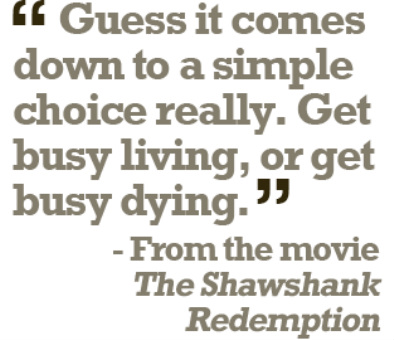Goal Setting

The two main reasons people don’t have goals are fear of failure and lack of drive. But if you ask most folks if they have goals, they’ll tell you yes, they do. What they mean is that they have dreams. Dreams are vague ideas for the future. Goals are specific plans. Dreams lie between the ears, in one’s head. Goals are written down, on paper – or electronically recorded – and are seen everyday. Goals differ greatly from dreams. Lifenuts have goals.
Lou Holtz, well known football coach and TV commentator, said, “If you’re bored with life — if you don’t get up every morning with a burning desire to do things — then you don’t have enough goals.” LifeNuts live life with vitality, a lot of which springs from having goals and accomplishing them.
Webster defines a goal as an observable and measurable end result having one or more objectives to be achieved within a more or less fixed time frame. Success is defined as the achievement of something desired, planned, or attempted.
For starters, let’s address the first reason that people don’t set goals: fear of failure. Gina weighs 100 pounds over her ideal weight but she’s afraid to set a goal to lose the weight because, if she doesn’t accomplish her goal, others might make fun of her. So what? Would true friends make fun of her? No. Friends don’t do that. And, if others choose to belittle her, such criticism reveals their own character flaws. When people tell me I can’t do something, their words stoke my fire of determination.
The second reason, lack of drive, might stem from a variety of reasons. Sometimes it’s tough to go outside your comfort zone. If everyone else is overweight or obese, why should I be different, you ask. Excellent point. Robert Frost, one of America’s favorite poets, wrote these lines in The Road Not Taken, “I took the road less traveled by, and that has made all the difference.” Frost was right: each of us marches to his or her own drummer and sometimes it’s not easy to take the road less traveled.
If you decide to set goals, especially the goal to become a LifeNut, you may face obstacles and failures and you may have to endure criticism from many naysayers. If you want to set a goal, write it on a piece of paper and post it where you can see it daily – on your bathroom mirror or in front of your desk. And look at it each day. Alternatively, you could put a note in your daily electronic planner that you would see each morning. Simply put, if your goals aren’t specific and documented, they’re not goals.
There are many different types of goals: spiritual, financial, relationships, fitness, nutritional, volunteering, and sports. You might even come up with some others. Be specific and set a time limit. For example, setting a goal of “financial independence” might seem fine, but it’s too general. Put a dollar amount on it and attach a date for completion. Accomplishing a short-term goal with a one-month time limit should inspire the confidence to set longer-term goals.
OK, you’ve drafted your goal, placed it where you can see it each day, and you’ve set a completion date. Now, how are you going to reach it? Answer: the action plan. Complex goals, such as losing 200 pounds, entail more planning than simpler ones such as meditating for one minute twice a day. Both are fine goals but the former demands a well thought out strategy, which takes time to formulate.
No one said it would be easy. Lofty goals demand work and discipline. It’s much better to try and fail … than never to try. Walt Disney, growing up in Chicago, tried to enlist in the army in WWI but was rejected because he was only 16. But, determined to be patriotic, he and a friend joined the Red Cross and went to France in 1918 where he drove an ambulance.
When the war ended, he became a cartoonist, facing failure and rejection in many jobs. An editor fired him. But after years of struggling and during the bleak days of the Great Depression, he developed the character of Mickey Mouse for which he received a special Academy Award in 1932, a time when breadlines were commonplace. During his career, he never gave up and, despite going bankrupt several times, he finally completed Disneyland in California. If he had let the early rejections defeat him, millions may never have enjoyed the likes of Mickey Mouse, Donald Duck, Dumbo, and Snow White and the Seven Dwarfs.
Great, you’ve done it. You’ve become a LifeNut! Now go out and celebrate. Or, perhaps you’ve just begun – you’ve lost ten pounds on a journey to lose 150 more. Pat yourself on the back. It’s life’s triumphs that mean so much – whether it’s a small step or a major milestone in your life. And don’t expect the world to rejoice. Your inner rewards are all that matter. Some people might notice that you’ve lost 50 pounds; some might be jealous; but most won’t notice and many don’t care. You’re the one that counts. Nice job!
The two simple words, I can, mean you can accomplish almost anything you want to, within reason. The next time you catch yourself saying to yourself, “I can’t,” ask yourself if you really can’t do whatever it is. Don’t sell yourself short. And don’t be discouraged. As a Chinese sage said many ages ago, “The journey of 1,000 miles begins with a single step.” So get going and take that first step. We’d love to have you join our club of fellow LifeNuts.
Life is full of choices. Choose wisely.

Change, by definition, involves stress, which none of us enjoy. But positive changes in lifestyles allow us to watch our grandchildren grow up ... and maybe even our great-grandchildren.



